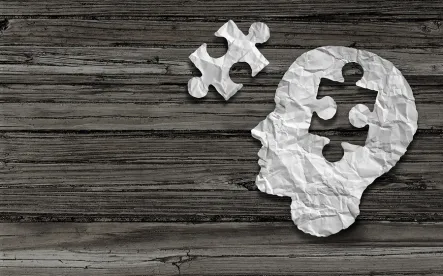Another favorable DTI decision has been made in Meadors v. D’Agostino, a case from the United States District Court, Middle District of Louisiana (October 29, 2020). This case arose out of a car crash where the plaintiff was struck by an 18-wheeler. Because of the crash, plaintiff suffered a traumatic brain injury among other injuries. In support of his damage claim, plaintiff sought the care of a neurologist and neuropsychologist. Plaintiff was diagnosed with post-concussive syndrome marked by memory and attention lapses. Plaintiff underwent an MRI with diffusion tensor imaging which indicated abnormally high fraction anisotropy (FA). Plaintiff’s neuroscientist, Dr. Jeffrey Lewine, reviewed the brain imaging data and opined that it was consistent with a diagnosis of traumatic brain injury.
Defendants moved to exclude Dr. Lewine’s testimony and any evidence about DTI analysis. Defendants argued that if the testimony was permitted, it would confuse and mislead the jury and that Dr. Lewine’s testimony failed to meet the standard for expert testimony in Rule 702 and Daubert v. Merrill Dow Pharmaceuticals.
Defendants sole complaint under Rule 403 was that Dr. Lewine could not testify that the DTI findings were more likely caused by the accident. Defendants reasoned that if Dr. Lewine could not establish that plaintiff’s elevated FA values resulted from the crash, then necessarily the jury would be misled and confused.
The court rejected this argument, finding:
The court is not persuaded and holds the jury in higher esteem than the defendants. Dr. Lewine’s DTI findings and testimony are obviously relevant to the issue of whether, and to what extent, plaintiff has suffered a brain injury resulting from the crash. As in any other case, it is for the jury to decide whether plaintiff’s alleged brain injury was caused by the crash…. Here, the jury will not decide causation based only on Dr. Lewine’s DTI analysis because plaintiff’s attending physicians have also submitted evidence indicating a brain injury. Indeed, it is worth noting that [plaintiff’s treating neurologist] specifically recommended plaintiff undergo DTI analysis based on her January 2019 observations. In this light, Dr. Lewine’s analysis is merely one additional data point for the jury to consider when making its determination.
Defendants also challenged each prong of the Daubert analysis contending that Dr. Lewine was not qualified, his analysis was not relevant, and his methods unreliable. The court rejected each of defendants’ arguments. More important, the court found:
Remarkably, in this regard, defendants completely ignored the great weight of authority rejecting the same attack on DTI analysis, including recent authority from this district. Just last year the court admitted expert testimony regarding DTI analysis over a reliability objection.



 />i
/>i

